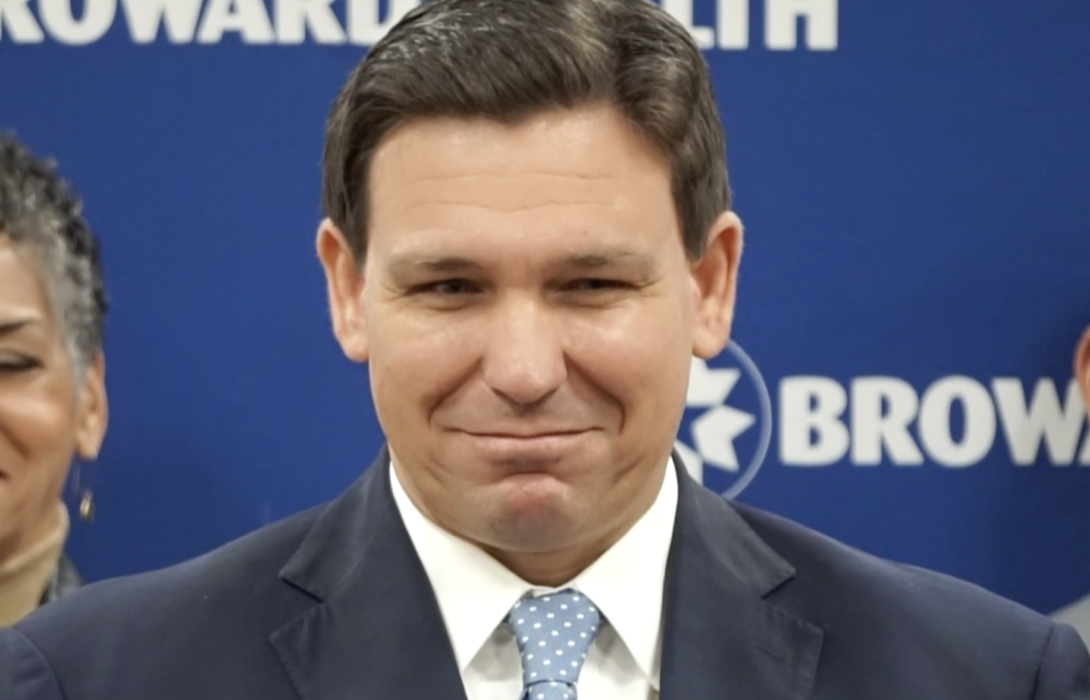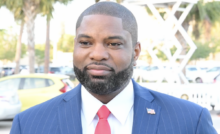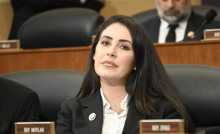U.S. District Judge Allen Winsor on Wednesday issued a 21-page decision dismissing a revised lawsuit filed by students, parents and teachers, who argued the law is unconstitutional. Winsor ruled that the plaintiffs had not “alleged sufficient facts” to show they had legal standing to challenge the law.
“Plaintiffs have shown a strident disagreement with the new law, and they have alleged facts to show its very existence causes them deep hurt and disappointment,” Winsor wrote. “But to invoke a federal court’s jurisdiction, they must allege more. Their failure to do so requires dismissal.”
Winsor on Sept. 29 dismissed an earlier version of the case on similar grounds but left open the possibility that the plaintiffs’ attorneys could re-file the lawsuit. The revised version, filed in October, argued that the plaintiffs have suffered “concrete harms” from the 2022 law (HB 1557).
“They have been denied equal educational opportunities they would like to receive, in the curriculum and beyond, and they have been subjected to a discriminatory educational environment that treats LGBTQ people and issues as something to be shunned and avoided, on pain of discipline and liability,” the revised lawsuit said. “This type of overtly discriminatory treatment has no place in a free democratic society and should not be permitted to stand.”
The law, which spurred fierce debate in the Legislature and has drawn national attention, prevents instruction on gender identity and sexual orientation in kindergarten through third grade and requires that such instruction be “age-appropriate … in accordance with state academic standards” in older grades.
Again,Republican lawmakers titled the measure the “Parental Rights in Education” bill. Opponents labeled it the “Don’t Say Gay” bill.
The revised lawsuit alleged that the measure violated constitutional due-process, equal-protection and First Amendment rights, along with a federal law known as Title IX, which bars sex-based discrimination in education programs.
Plaintiffs in the revised case were two students in Miami-Dade County and Manatee County schools, two lesbian couples with children in Miami-Dade County schools, a woman with children in Orange County schools and two teachers in Broward County and Pasco County schools. The defendants were the State Board of Education, the Florida Department of Education and the school boards in Broward, Manatee, Miami-Dade, Orange and Pasco counties.
In an attempt to show standing, the revised version sought to link the law with harm.
As examples, it cited a decision by the Miami-Dade County School Board to reject a resolution designating October as LGBTQ History Month; said one of the student plaintiffs, identified by the initials M.A., could not find a teacher willing to sponsor the Gay-Straight Alliance at a Manatee County school; and said Broward County schools removed LGBTQ-related books after receiving complaints from the conservative group Moms for Liberty.
But in Wednesday’s ruling, Winsor said such arguments were insufficient.
For instance, he wrote that the Miami-Dade School Board’s decision to reject the resolution about LGBTQ History Month “does not create a particularized injury; it shows at most a generalized grievance shared by all who would have preferred the opposite outcome.”
“Regardless, there is a redressability problem because there are insufficient facts to show a nonspeculative likelihood that the school board would adopt such a resolution if the court enjoined it from enforcing the challenged law,” wrote Winsor, who was appointed to the federal bench by former President Donald Trump after serving as a state appellate judge.
Meanwhile, addressing the lack of a sponsor for the Gay-Straight Alliance at the Manatee County school, he wrote that the plaintiffs have “an obvious traceability problem: the law plainly does not preclude a teacher’s service as an extracurricular club advisor.”
“Redressability is a problem too. Plaintiffs have not alleged facts to show it likely that an injunction against the Manatee County School Board (or any other defendant) would yield a willing sponsor,” he wrote.
The law also has drawn a separate constitutional challenge in federal court in Orlando. U.S. District Judge Wendy Berger on Oct. 20 dismissed that case but, like Winsor, gave the plaintiffs an opportunity to file a revised version. The revised lawsuit remains pending.
Publisher Javier Manjarres contributed to this News Service of Florida story.




